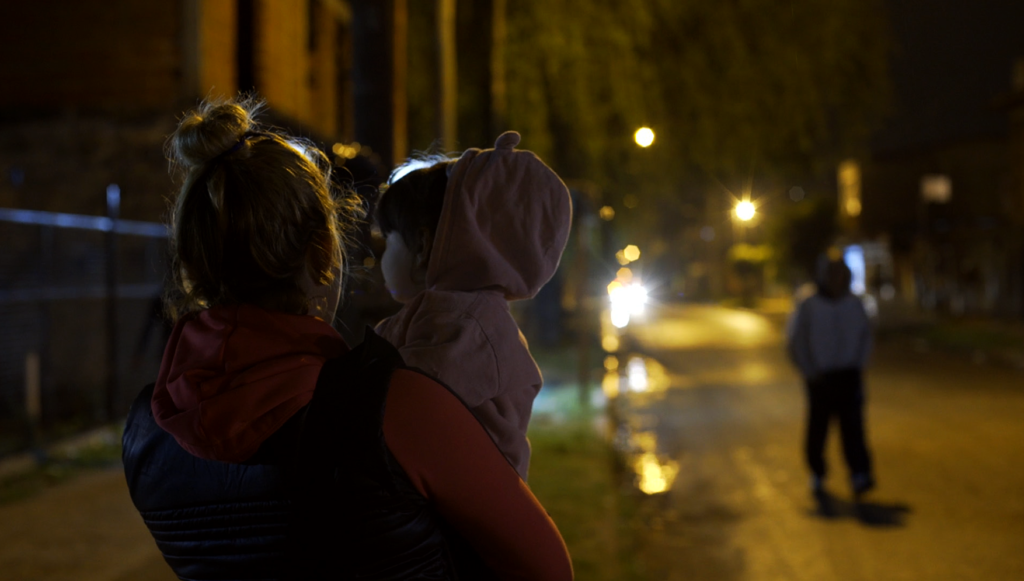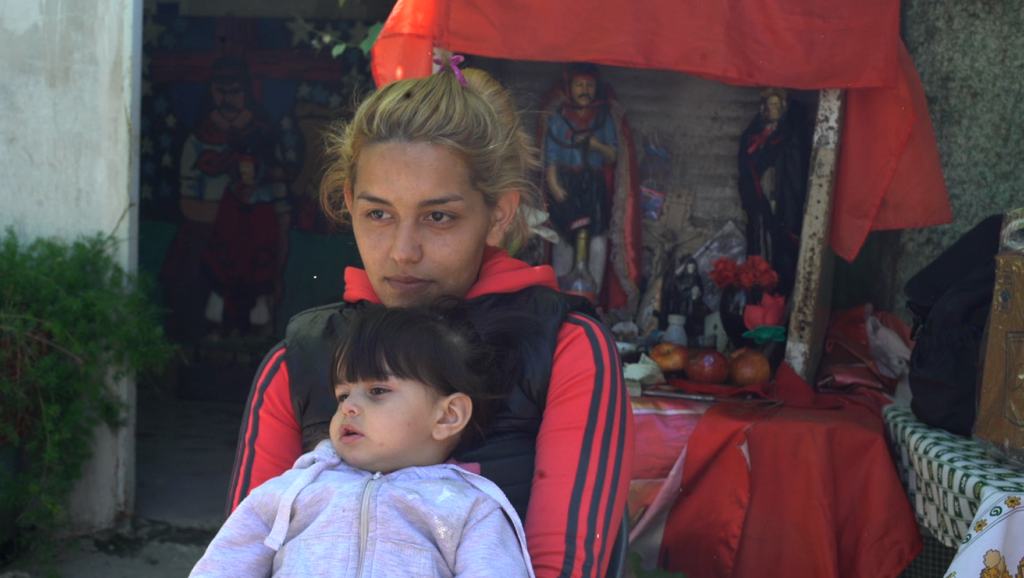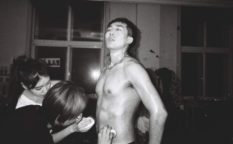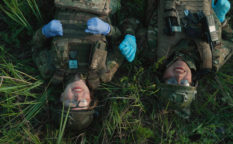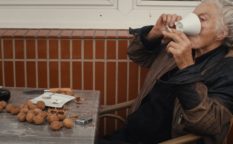Review: Las Ranas (2020)
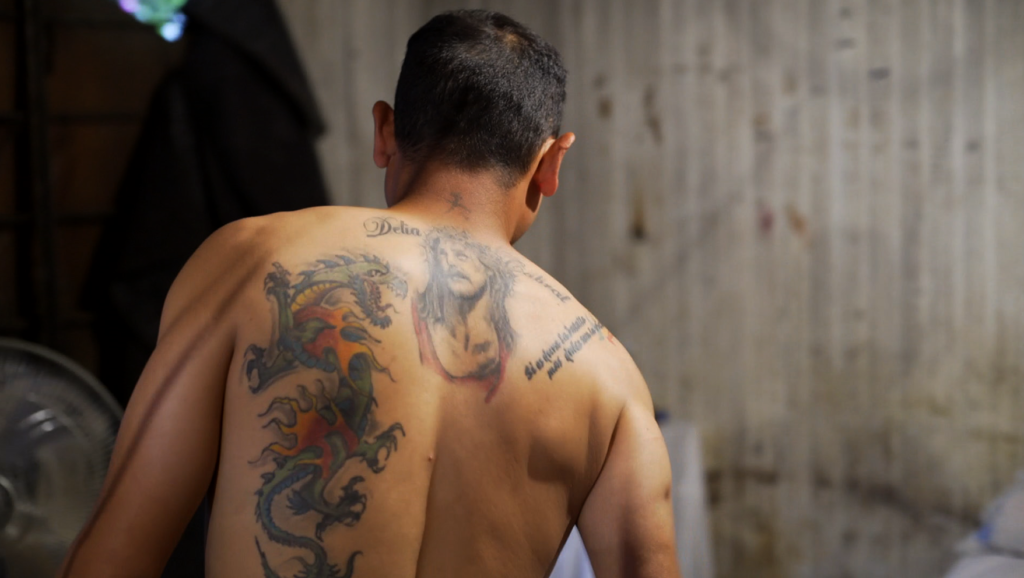
It’s a man’s world held together from the fringes by invisible women. That may apply to most of the world in general, but in particular to the one portrayed in Las Ranas, the new feature by Edgardo Castro, Argentinean filmmaker (La noche, 2016; Familia, 2019) and actor remembered for his roles in Benjamín Naishtat’s Historia del Miedo (2014), Mariano Llinás’s La Flor (2019), and Alejo Moguillansky’s Castro (2009), of course.
World-premiered in Visions du Réel’s Burning Lights International Competition, the self-produced scripted mise-en-scène deals with affection and intimacy under challenging circumstances: the “frogs” – the literal meaning of “ranas”– in the title are women who visit their partners in jail to bring them some emotional and sexual solace, and also some smuggled goods. It’s a man’s world, and although the film is devoted to its heroine, it sets up the context frankly and clearly from the start, as her and the other women’s lives seem to be determined by and organised around men.
The first minutes introduce the male-dominated environment, with men hanging out by a grill where they’re starting a fire, casually talking about their daily lives, their informal but honest jobs, the soccer game they’ll play later that day… as well as their small-time criminal activities and some gang-related killings. Prison time, gang violence and guns are a natural part of this conversation, just like loyalty and earnest feelings.
Only a few minutes into the film, after focusing at length on the slicing of meat or simply on the men smoking or changing clothes (bodies and skin are often scrutinised in Las Ranas), the camera finally reveals a very young woman sitting nearby, holding a neatly-groomed toddler girl. A spectator to the male-driven action and practically the only female presence in the gathering (another woman appears briefly among the crowd, but we don’t even see her face), she patiently observes. She wears a closed expression on her face, at times a bit self-conscious –as she gets used to the camera clinging onto her– but mostly reserved, as she will remain for the rest of the film. What reflections, what emotions cross her mind, only she knows. The pain and the weariness, however, are hard to hide.
Las Ranas plays with what could seem paradoxical. The complicit camera not only follows Barbara (we learn her name much later) and the others usually from extremely up close, but even enters theirmost intimate spaces –thus letting us in as well. And yet their thoughts, feelings and even their circumstances are kept private, with the film sharing next to no details about their past or present lives, and even about the exact nature of the relations between different characters –even names are rare. In that sense, the participants are both absolute protagonists, socially marginalised people turned into heroes of their own film, and also anonymous, decontextualised subjects representing their own role. Likewise, though Barbara soon becomes the film’s heart, she remains in the background: of the city, of society, of life.
During the week, the tired but conscientious mother tries to earn some money selling socks on the street or door to door, and on weekends she takes a long-distance bus along with other women to visit their partners in a detention facility where inmates can collectively receive visitors, including aprivate room for couples. The building becomes the core around which the film and all the actions gravitate, as well as another, fundamental paradox: this area within a prison represents the space where the inmates form a community (cooking together and preparing the place to receive their guests) and, for a while, are the object of the tenderness, the desire, the concern or simply the embrace of their partners and family, allowing a raw intimacy and humanity to emerge, offering a glimpse of essential freedom.
Original title: Las ranas
Year: 2020
Runtime: 78′
Country: Argentina
Language: Spanish
Directed by: Edgardo Castro
Written by: Edgardo Castro
Cinematography by: Yarará Rodríguez
Editing by: Susana Leunda
Sound design by: Gabriel Barredo
Colourist: Julieta Duchovny
Produced by: Edgardo Castro
Executive producers: Tomás Guiñazú, Hernán Glatsman, Gabriel Mendoza, Carlos de Jesús Cabral, Edgardo Castro

